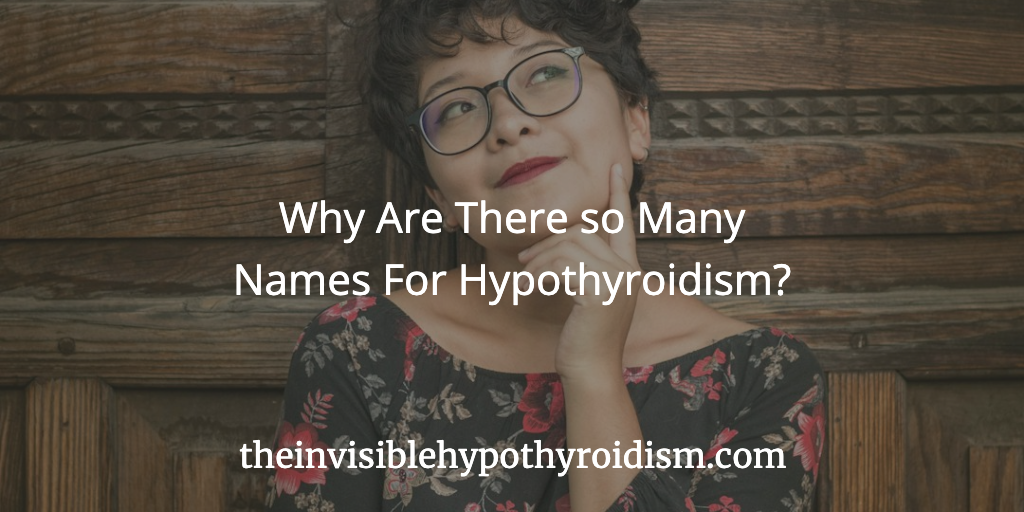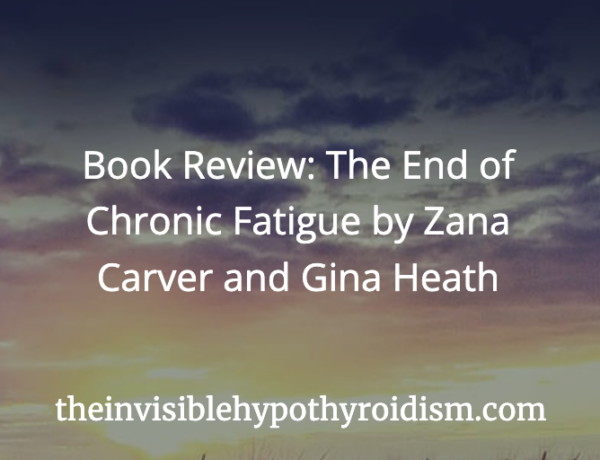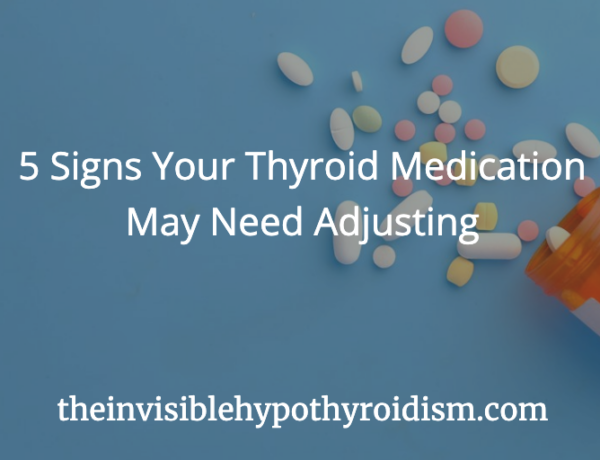I’m sure I’m not the only person who thought this after being diagnosed with a thyroid condition;
Why are there so many different names for it?!
After receiving a diagnosis, a lot people take to the internet or online forums to seek answers and support but many different names and terms are used when people talk about their thyroid condition. Namely hypothyroidism, which is also known as an underactive thyroid, Hashimoto’s, thyroid disease and more.
So, what’s the difference and what term should you be using?
An Underactive Thyroid
The term ‘underactive thyroid’ is quite self explanatory and is perhaps the most well-recognised term among the general public. It is used when the thyroid gland isn’t producing as much thyroid hormone as it should be, therefore being under active, and resulting in a long list of symptoms.
An underactive thyroid is most often caused by the autoimmune disease Hashimoto’s (more on that below). If someone doesn’t have a thyroid gland, i.e are born without a thyroid, have had it removed due to thyroid cancer or have had it ablated (all function destroyed) then an underactive thyroid isn’t used for them as they don’t have a working thyroid gland at all, let alone one that is underactive.
So, the term ‘underactive thyroid’ is suitable for:
- Those with a thyroid gland that isn’t producing enough thyroid hormone, whether it is due to having the autoimmune disease Hashimoto’s or not
- Those with subclinical/borderline hypothyroidism
Hypothyroidism
Usually the most appropriate term for most kinds of conditions resulting from inadequate levels of thyroid hormone, ‘hypothyroidism‘ means to have low thyroid hormone levels, and this can be from having no thyroid gland at all, only part of one, or having one but it not work properly (from Hashimoto’s or not).
So, the term ‘hypothyroidism’ is suitable for:
- Those with a thyroid gland that isn’t producing enough thyroid hormone, whether it is due to the autoimmune disease Hashimoto’s or not
- Those without a thyroid gland
- Those with a thyroid gland that has lost all function (ablated)
- Those with some of a full thyroid gland that isn’t producing enough thyroid hormone
- Those with subclinical/borderline hypothyroidism
- Those that have congenital hypothyroidism
Low Thyroid
‘Low thyroid’, most often used by doctors and in medical books, is the same as ‘hypothyroidism’. It means to have low thyroid hormone levels. (please see above ‘hypothyroidism’)
Thyroid Disease / Thyroid Disorder
‘Thyroid disease’ or ‘thyroid disorder’ is used when the structure or function of the thyroid gland is affected. Therefore anything abnormal with the thyroid.
So, the term ‘thyroid disease’ or ‘thyroid disorder’ is suitable for:
- Those with a thyroid gland that isn’t producing enough thyroid hormone, whether it is due to autoimmune disease Hashimoto’s or not
- Those with a thyroid gland that is producing too much thyroid hormone, whether it is due to autoimmune disease Graves or not
- Those with thyroid cancer
- Those without a thyroid gland
- Those with some of a full thyroid gland that isn’t producing enough thyroid hormone
- Those with a thyroid gland that has lost all function (ablated)
- Those with subacute thyroiditis or other short term thyroid disorder
- Those with subclinical/borderline hypothyroidism
- They have congenital hypothyroidism
- Any other disease or disorder involving the thyroid gland
Congenital Hypothyroidism
‘Congenital hypothyroidism’ is a condition resulting from an absent or under-developed thyroid gland, or one that has developed but cannot make enough thyroid hormone, leading to hypothyroidism. The term ‘congenital’ means that the condition is present at birth.
So, the term ‘congenital hypothyroidism’ is suitable for:
- Those who have had hypothyroidism since birth, whether they have a thyroid gland, an under-developed one or none at all
Hashimoto’s / Hashi’s or Autoimmune Hypothyroidism
Around 90% of us with hypothyroidism have Hashimoto’s Thyroiditis (often also called Hashi’s) as the cause for it. [1]
Hashimoto’s is an autoimmune disease whereby the body attacks and destroys its own thyroid gland, causing hypothyroidism as the thyroid begins to lose function and ability to produce adequate thyroid hormone, from the damage caused.
Most of us with the diagnosis of an underactive thyroid or hypothyroidism will also have Hashimoto’s, making it autoimmune hypothyroidism and meaning we actually have two forms of thyroid disease.
However, there are some people who can have Hashimoto’s without losing much thyroid function, for example if they catch the autoimmune disease early enough that it hasn’t caused much damage to their thyroid gland yet, and so do not have hypothyroidism or an underactive thyroid. This is somewhat rare as most people only start to have symptoms of Hashimoto’s and hypothyroidism once a lot of damage to the thyroid has already been done and so thyroid hormone replacement medication is needed for life. Read about how I got my own Hashimoto’s in to remission here.
So, the term ‘Hashimoto’s/Hashi’s’ or ‘Autoimmune Hypothyroidism’ is suitable for:
- Those with Hashimoto’s Thyroiditis (positive thyroid antibodies TpoAB and TgAB) whether they also have hypothyroidism as a result of it or not
You can click on the hyperlinks in the above post to learn more and see references to information given.
Do you know which terms you should be using for your thyroid condition?
References:
[1] https://www.ncbi.nlm.nih.gov/pubmed/3066320

The book Be Your Own Thyroid Advocate: When You’re Sick and Tired of Being Sick and Tired, which builds on this article and discusses how to understand your thyroid condition and get it under control.





